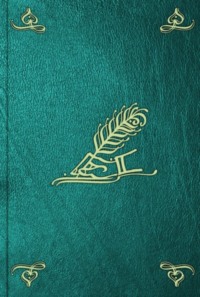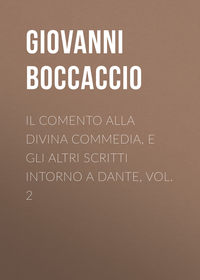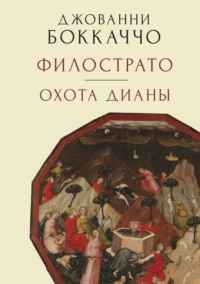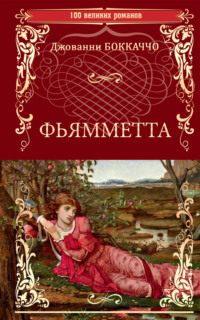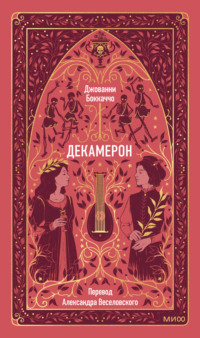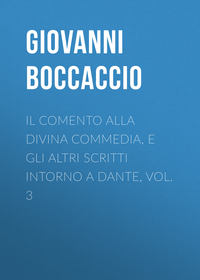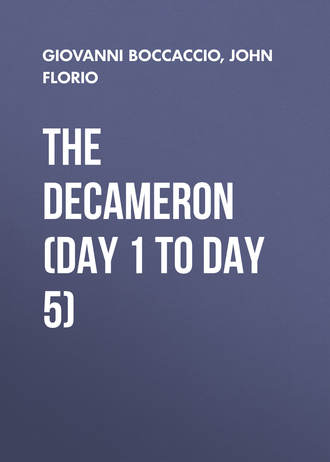 полная версия
полная версияThe Decameron (Day 1 to Day 5)
When he was there arrived, he found the great gate open, and entering in boldly, it was his good hap to espy the Fac-totum in the court, according as Lurco had given description of him. Making signes before him, as if he were both dumbe and deafe; he manifested, that he craved an Almes for Gods sake, making shewes beside, that if need required, he could cleave wood, or do any reasonable kinde of service. The Fac-totum gladly gave him food, and afterward shewed him divers knotty logs of wood, which the weake strength of Lurco had left uncloven; but this fellow being more active and lusty, quickly rent them all to pieces. Now it so fell out, that the Fac-totum must needs go to the Forrest, and tooke Massetto along with him thither: where causing him to fell divers Trees, by signes he bad him to lade the two Asses therewith, which commonly carried home all the wood, and so drive them to the Monasterie before him, which Massetto knew well enough how to do, and performed it very effectually.
Many other servile offices were there to bee done, which caused the Fac-totum to make use of his paines divers other dayes beside: in which time, the Lady Abbesse chancing to see him, demanded of the Fac-totum what he was? Madam (quoth hee) a poore labouring man, who is both deafe and dumbe: hither he came to crave an almes the other day, which in charity I could do no lesse but give him; for which hee hath done many honest services about the house. It seemes beside, that hee hath some pretty skill in Gardening, so that if I can perswade him to continue here, I make no question of his able services: for the old silly man is gone, and we have neede of such a stout fellow, to do the businesse belonging unto the Monastery, and one fitter for the turne, comes sildome hither. Moreover, in regard of his double imperfections, the Sisters can sustaine no impeachment by him. Whereto the Abbesse answered, saying; By the faith of my body, you speake but the truth: understand then, if hee have any knowledge in Gardening, and whether hee will dwell heere, or no: which compasse so kindly as you can. Let him have a new paire of shoes, fill his belly daily full of meate, flatter, and make much of him, for wee shall finde him worke enough to do. All which, the Fac-totum promised to fulfill sufficiently.
Massetto, who was not farre off from them all this while, but seemed seriously busied, about sweeping and making cleane the Court, hearde all these speeches; and being not a little joyfull of them, saide to himselfe. If once I come to worke in your Garden, let the proofe yeelde praise of my skill and knowledge. When the Fac-totum perceived, that he knew perfectly how to undergo his businesse, and had questioned him by signes, concerning his willingnesse to serve there still, and received the like answer also, of his dutifull readinesse thereto; he gave him order, to worke in the Garden, because the season did now require it; and to leave all other affayres for the Monastery, attending now onely the Gardens preparation.
As Massetto was thus about his Garden emploiment, the Nunnes began to resort thither, and thinking the man to bee dumbe and deafe indeede, were the more lavish of their language, mocking and flowting him very immodestly, as being perswaded, that he heard them not. And the Lady Abbesse, thinking he might as well be an Eunuch, as deprived both of hearing and speaking, stood the lesse in feare of the Sisters walks, but referred them to their owne care and providence. On a day, Massetto having laboured somewhat extraordinarily, lay downe to rest him selfe awhile under the trees, and two delicate yong Nunnes, walking there to take the aire, drew neere to the place where he dissembled sleeping; and both of them observing his comelinesse of person, began to pity the poverty of his condition, but much more the misery of his great defectes. Then one of them, who had a little livelier spirit then the other, thinking Massetto to be fast asleepe, began in this manner.
Sister (quoth she) if I were faithfully assured of thy secrecie, I would tell thee a thing which I have often thought on, and it may (perhaps) redound to thy profit. [Example, at least excuses formed to that intent prevaileth much with such kind of religious women.] Sister, replyed the other Nun, speake your minde boldly, and beleeve it (on my Maiden-head) that I will never reveale it to any creature living. Encouraged by this solemne answer, the first Nun thus prosecuted her former purpose, saying. I know not Sister, whether it hath entred into thine understanding or no, how strictly we are here kept and attended, never any man daring to adventure among us, except our good and honest Fac-totum, who is very aged; and this dumbe fellow, maimed, and made imperfect by nature, and therefore not woorthy the title of a man. Ah Sister, it hath oftentimes bin told me, by Gentle-women comming hither to visite us, that all other sweetes in the world, are meere mockeries, to the incomparable pleasures of man and woman, of which we are barred by our unkind parents, binding us to perpetuall chastity, which they were never able to observe themselves.
A Sister of this house once told me, that before her turne came to be sent to the Soldane, she fell in frailty, with a man that was both lame and blinde, and discovering the same to her Ghostly Father in confession; he absolved her of that sinne; affirming, that she had not transgressed with a man, because he wanted his rationall and understanding parts. Behold Sister, heere lyes a creature, almost formed in the selfe-same mold, dumb and deafe, which are two the most rational and understanding parts that do belong to any man, and therefore no Man, wanting them. If folly & frailty should be committed with him (as many times since hee came hither it hath run in my minde) hee is by Nature, sworne to such secrecie, that he cannot (if he would) be a blabbe thereof. Beside, the Lawes and constitutions of our Religion doth teach us, that a sinne so assuredly concealed, is more then halfe absolved.
Ave Maria Sister (said the other Nunne) what kinde of words are these you utter? Doe not you know, that wee have promised our virginity to God? Oh Sister (answered the other) how many things are promised to him every day, and not one of a thousand kept or performed? If wee have made him such a promise, and some of our weaker witted Sisters do performe it for us, no doubt but he will accept it in part of payment. Yea but Sister, replied the second Nunne againe, there is another danger lying in our way: If wee prove to be with childe, how shall we doe then? Sister (quoth our couragious Wench) thou art afraid of a harme, before it happen, if it come so to passe, let us consider on it then: thou art but a Novice in matters of such moment, and wee are provided of a thousand meanes, whereby to prevent conception. Or, if they should faile, wee are so surely fitted, that the world shall never know it: let it suffice, our lives must not be (by any) so much as suspected, our Monasterie questioned, or our Religion rashly scandalized. Thus shee schooled her younger Sister in wit, albeit as forward as she in will, and longed as desirously, to know what kinde a creature a man was.
After some other questions, how this intention of theirs might be safely brought to full effect: the sprightly Nunne, that had wit at will, thus answered. You see Sister (quoth she) it is now the houre of midday, when all the rest of our Sisterhood are quiet in their Chambers, because we are then allowed to sleepe, for our earlier rising to morning Mattins. Here are none in the Garden now but our selves, and, while I awake him, be you the watch, and afterward follow me in my fortune, for I will valiantly leade you the way. Massetto imitating a dogges sleepe, heard all this conspiracie intended against him, and longed as earnestly, till shee came to awake him. Which being done, he seeming very simply sottish, and she chearing him with flattering behaviour: into the close Arbour they went, which the Sunnes bright eye could not pierce into, and there I leave it to the Nunnes owne approbation, whether Massetto was a man rationall, or no. Ill deedes require longer time to contrive, then act, and both the Nunnes, having beene with Massetto at this new forme of confession, were enjoyned (by him) such an easie and silent penance, as brought them the oftner to shrift, and made him to proove a perfect Confessour.
Desires obtained, but not fully satisfied, doe commonly urge more frequent accesse, then wisdome thinkes expedient, or can continue without discoverie. Our two Joviall Nunnes, not a little proud of their private stolne pleasures, so long resorted to the close Arbour; till an other Sister, who had often observed their haunt thither, by meanes of a little hole in her window; that shee began to suspect them with Massetto, and imparted the same to two other Sisters, all three concluding, to accuse them before the Lady Abbesse. But upon a further conference had with the offenders, they changed opinion, tooke the same oath as the forewoman had done, and because they would be free from any taxation at all: they revealed their adventures to the other three ignorants, and so fell all eight into one formall confederacie, but by good and warie observation, least the Abbesse her selfe should descry them; finding poore Massetto such plenty of Garden-worke, as made him very doubtfull in pleasing them all.
It came to passe in the end, that the Lady Abbesse, who all this while imagined no such matter, walking all alone in the Garden on a day, found Massetto sleeping under an Almond tree, having then very little businesse to doe, because he had wrought hard all the night before. Shee observed him to be an hansome man, young, lusty, well limbde, and proportioned, having a mercifull commisseration of his dumbnesse and deafenesse, being perswaded also in like manner, that if he were an Eunuch too, he deserved a thousand times the more to be pittied. The season was exceeding hot, and he lay downe so carelesly to sleepe, that something was noted, wherein shee intended to be better resolved, almost falling sicke of the other Nunnes disease. Having awaked him, she commanded him (by signes) that he should follow her to her chamber, where he was kept close so long, that the Nunnes grew offended, because the Gardener came not to his dayly labour.
Well may you imagine that Massetto was no misse-proud man now, to be thus advanced from the Garden to the Chamber, and by no worse woman, then the Lady Abbesse her selfe, what signes, shewes, or what language he speaks there, I am not able to expresse; onely it appeard that his behaviour pleased her so well, as it procured his daily repairing thither; and acquainted her with such familiar conversation, as shee would have condemned in the Nuns her daughters, but that they were wise enough to keepe it from her. Now began Massetto to consider with himselfe, that he had undertaken a taske belonging to great Hercules, in giving contentment to so many, and by continuing dumbe in this manner, it would redound to his no meane detriment. Whereupon, as hee was one night sitting by the Abbesse, the string that restrained his tongue from speech, brake on a sodaine, and thus he spake.
Madam, I have often heard it said, that one Cocke may doe service to ten severall Hennes, but ten men can (very hardly) even with all their best endeavour, give full satisfaction every way to one woman; and yet I am tied to content nine, which is farre beyond the compasse of my power to doe. Already have I performed so much Garden and Chamber-worke, that I confesse my selfe starke tired, and can travaile no further; and therefore let me entreate you to lysence my departure hence, or finde some meanes for my better ease. The Abbesse hearing him speake, who had so long served there dumbe; being stricken into admiration, and accounting it almost a miracle, saide. How commeth this to passe? I verily beleeved thee to be dumbe. Madam (quoth Massetto) so I was indeed, but not by Nature; onely I had a long lingering sicknesse, which bereft me of speech, and which I have not onely recovered againe this night, but shall ever remaine thankfull to you for it.
The Abbesse verily credited his answer, demanding what he meant, in saying, that he did service to nine? Madam, quoth he, this were a dangerous question, and not easily answered before all the eight Sisters. Upon this reply, the Abbesse plainly perceived, that not onely shee had fallen into folly, but all the Nunnes likewise cried guilty too: wherefore being a woman of sound discretion, she would not grant that Massetto should depart, but to keepe him still about the Nunnes businesse, because the Monastery should not be scandalized by him. And the Fac-totum being dead a little before, his strange recovery of speech revealed, and some things else more neerely concerning them: by generall consent, & with the good liking of Massetto, he was created the Fac-totum of the Monasterie.
All the neighbouring people dwelling thereabout, who knew Massetto to be dumbe, by fetching home wood daily from the Forrest, and divers employments in other places; were made to beleeve that by the Nunnes devoute prayers and discipline, as also the merits of the Saint, in whose honour the Monastery was built and erected, Massetto had his long restrained speech restored, and was now become their sole Fac-totum, having power now to employ others in drudgeries, and ease himselfe of all such labours. And albeit he make the Nunnes to be fruitfull, by encreasing some store of yonger Sisters; yet all matters were so close & cleanly carried, as it was never talkt of, till after the death of the Ladie Abbesse, when Massetto beganne to grow in good yeares, and desired, to returne home to his Native abiding, which (within a while after) was granted him.
Thus Massetto, being rich and old, returned home like a wealthy Father, taking no care for the nursing of his children, but bequeathed them to the place where they were bred and born, having (by his wit and ingenious apprehension) made such a benefit of his youthfull years, that now he merrily tooke ease in his age.
A Querry of the Stable, belonging to Agilulffo; King of the Lombards, found the meanes of accesse to the Queenes bed, without any knowledge or consent in her. This being secretly discovered by the King, and the party knowne, he gave him a marke, by shearing the haire of his head. Whereupon, he that was so shorne, sheared likewise the heads of all his fellowes in the lodging, and so escaped the punishment intended towards himThe second Novell
Wherein is signified, the providence of a wise man, when he shall have reason to use revenge. And the cunning craft of another, when hee compasseth meanes to defend himselfe from perillWhen the Novell of Philostratus was concluded, which made some of the Ladies blush, and the rest to smile: it pleased the Queene, that Madam Pampinea should follow next, to second the other gone before; when she, smiling on the whole assembly, began thus. There are some men so shallow of capacity, that they will (neverthelesse) make shew of knowing and understanding such things, as neither they are able to doe, nor appertaine to them: whereby they will sometimes reprehend other mens errors, and such faults as they have unwillingly committed, thinking thereby to hide their owne shame, when they make it much more apparant and manifest. For proofe whereof, faire company, in a contrary kinde I will shew you the subtill cunning of one, who (perhaps) might be reputed of lesse reckoning then Massetto; and yet hee went beyond a King, that thought himselfe to be a much wiser man.
Agilulffo, King of Lombardie, according as his Predecessours had done before him, made the principall seate of his Kingdome, in the Citie of Pavia, having embraced in mariage, Tendelinga, the late left widdow of Vetario, who likewise had beene King of the Lombards; a most beautifull, wise and vertuous Lady, but made unfortunate by a mischance. The occurrences and estate of the whole Realme, being in an honourable, quiet and well setled condition, by the discreete care and providence of the King; a Querrie appertaining to the Queenes Stable of Horse, being a man but of meane and lowe quality, though comely of person, and of equall stature to the King; became immeasurably amorous of the Queene. And because his base and servile condition, had endued him with so much understanding, as to know infallibly, that his affection was mounted, beyond the compasse of conveniencie; wisely hee concealed it to himselfe, not acquainting any one therewith, or daring so much, as to discover it either by lookes, or any other affectionate behaviour.
And although hee lived utterly hopelesse, of ever attaining to his hearts desires; yet notwithstanding, hee proudly gloried, that his love had soared so high a pitch, as to be enamoured of a Queene. And dayly, as the fury of his flame encreased; so his carriage was farre above his fellowes and companions, in the performing of all such serviceable duties, as any way he imagined might content the Queene. Whereon ensued, that whensoever shee roade abroad to take the ayre, shee used oftner to mount on the Horse, which this Querrie brought when shee made her choise, then any of the other that were led by his fellowes. And this did he esteeme as no meane happinesse to him, to order the stirrope for her mounting, and therefore gave dayly his due attendance: so that, to touch the Stirrope, but (much more) to put her foote into it, or touch any part of her garments, he thought it the onely heaven on earth.
But, as we see it oftentimes come to passe, that by how much the lower hope declineth, so much the higher love ascendeth; even so fell it out with this poore Querry; for, most irkesome was it to him, to endure the heavy waight of his continuall oppressions, not having any hope at all of the very least mitigation. And being utterly unable to relinquish his love divers times he resolved on some desperate conclusion, which might yet give the world an evident testimony, that he dyed for the love he bare to the Queene. And upon this determination, hee grounded the successe of his future fortune, to dye in compassing some part of his desire, without either speaking to the Queene, or sending any missive of his love; for to speake or write, were meerely in vaine, and drew on a worser consequence then death, which he could bestow on himselfe more easily, and when he listed.
No other course now beleagers his braines, but onely for secret accesse to the Queenes bed, and how he might get entrance into her Chamber, under colour of the King, who (as he knew very well) slept manie nights together from the Queene. Wherefore, to see in what manner, & what the usuall habit was of the King, when he came to keepe companie with his Queene: he hid himselfe divers nights in a Gallery, which was betweene both their lodging Chambers. At length, he saw the King come forth of his Chamber, himselfe all alone, with a faire night-mantle wrapt about him, carrying a lighted Taper in the one hand, and a small white Wand in the other, so went he on to the Queenes lodging; and knocking at the doore once or twice with the wand, and not using any word, the doore opened, the light was left without, and he entered the Chamber, where he stayed not long, before his returning backe againe, which likewise very diligently he observed.
So familiar was he in the Wardrobe, by often fetching and returning the King and Queenes furnitures; that the fellowe to the same Mantle, which the King wore when he went to the Queene, very secretly he conveighed away thence with him, being provided of a Light, and the verie like Wand. Now bestowes he costly bathings on his body, that the least sent of the Stable might not be felt about him; and finding a time sutable to his desire, when he knew the King to be at rest in his owne Lodging, and all else sleeping in their beds; closely he steals into the Gallery, where alighting his Taper, with Tinder purposely brought thither, the Mantle folded about him, and the Wand in his hand, valiantly he adventures upon his lives perill. Twice hee knockt softly at the doore, which a wayting woman immediately opened, and receyving the Light, went forth into the Gallery, while the supposed King, was conversing with the Queene.
Alas good Queene, heere is sinne committed, without any guiltie thought in thee, as (within a while after) it plainely appeared. For, the Querry having compassed what he most coveted, and fearing to forfeite his life by delay, when his amorous desire was indifferently satisfied: returned backe as he came, the sleepy waiting woman not so much as looking on him, but rather glad, that she might get her to rest againe. Scarcely was the Querrie stept into his bed, unheard or discerned by any of his fellowes, divers of them lodging both in that and the next Chamber: but it pleased the King to visite the Queene, according to his wonted manner, to the no little mervaile of the drowsie wayting woman, who was never twice troubled in a night before. The King being in bed, whereas alwayes till then, his resort to the Queene, was altogether in sadnesse and melancholly, both comming and departing without speaking one word: now his Majestie was become more pleasantly disposed, whereat the Queene began not a little to mervaile. Now trust mee Sir, quoth shee, this hath been a long wished, and now most welcome alteration, vouchsafing twice in a night to visite me, and both within the compasse of one houre; for it cannot be much more, since your being here, and now comming againe.
The King hearing these words, sodainly presumed, that by some counterfeit person or other, the Queene had been this night beguiled: wherefore (very advisedly) hee considered, that in regard the party was unknowne to her, and all the women about her; to make no outward appearance of knowing it, but rather concealed it to himselfe. Farre from the indiscretion of some hare-braind men, who presently would have answered and sworne; I came not hither this night, till now. Whereupon many dangers might ensue, to the dishonour and prejudice of the Queene; beside, hir error being discovered to hir, might afterward be an occasion, to urge a wandring in her appetite, and to covet after change againe. But by this silence, no shame redounded to him or her, whereas prating, must needes be the publisher of open infamie: yet was hee much vexed in his minde, which neither by lookes or words hee would discover, but pleasantly said to the Queene. Why Madame, although I was once heere before to night, I hope you mislike not my second seeing you, nor if I should please to come againe. No truely Sir, quoth she, I only desire you to have care of your health. Well, said the King, I will follow your counsaile, and now returne to mine owne lodging againe, committing my Queene to her good rest.
His blood boyling with rage and distemper, by such a monstrous injurie offered him; he wrapt his night-mantle about him, and leaving his Chamber, imagining, that whatsoever he was, needes he must be one of his owne house: he tooke a light in his hand, and convayed it into a little Lanthorne, purposing to be resolved in his suspition. No guests or strangers were now in his Court, but onely such as belonged to his houshold, who lodged altogether about the Escurie and Stables, being there appointed to divers beds. Now, this was his conceite, that whosoever had beene so lately familiar with the Queene, his heart and pulse could (as yet) be hardly at rest, but rather would be troubled with apparant agitation, as discovering the guilt of so great an offender. Many Chambers had hee passed thorow, where all were soundly sleeping, and yet he felt both their brests and pulses.
At last he came to the lodging of the man indeede, that had so impudently usurped his place, who could not as yet sleepe, for joy of his atchieved adventure. When he espied the King come in, knowing well the occasion of his search, he began to waxe very doubtfull, so that his heart and pulse beating extremely, he felt a further addition of feare, as being confidently perswaded, that there was now no other way but death, especially if the King discovered his agony. And although many considerations were in his braine, yet because he saw that the King was unarmed, his best refuge was, to make shew of sleepe, in expectation what the King intended to doe. Among them all he had sought, yet could not find any likelihood, whereby to gather a grounded probability; untill he came to this Querry, whose heart and pulses laboured so sternely, that he said to himselfe; yea mary, this is the man that did the deede.


